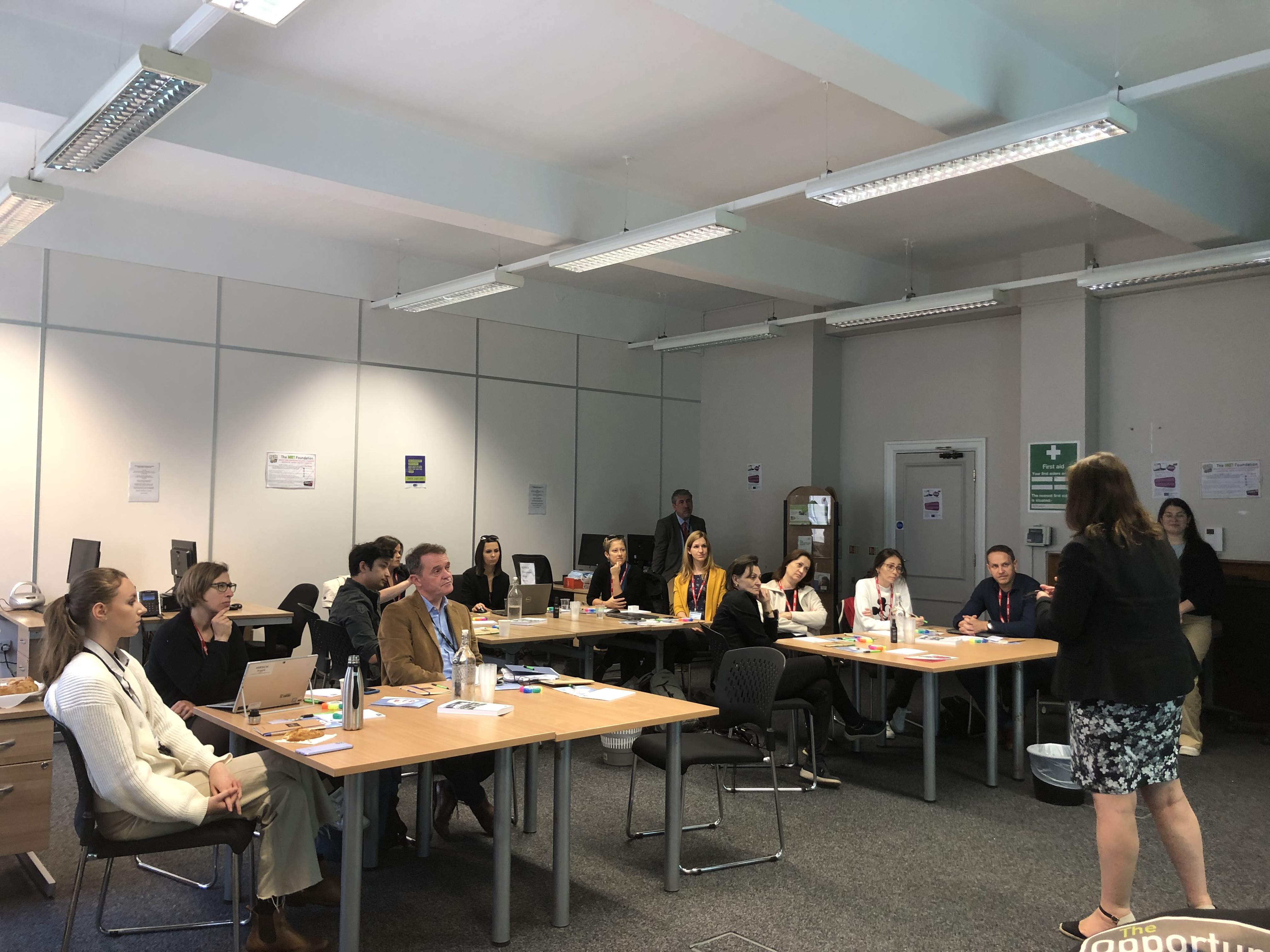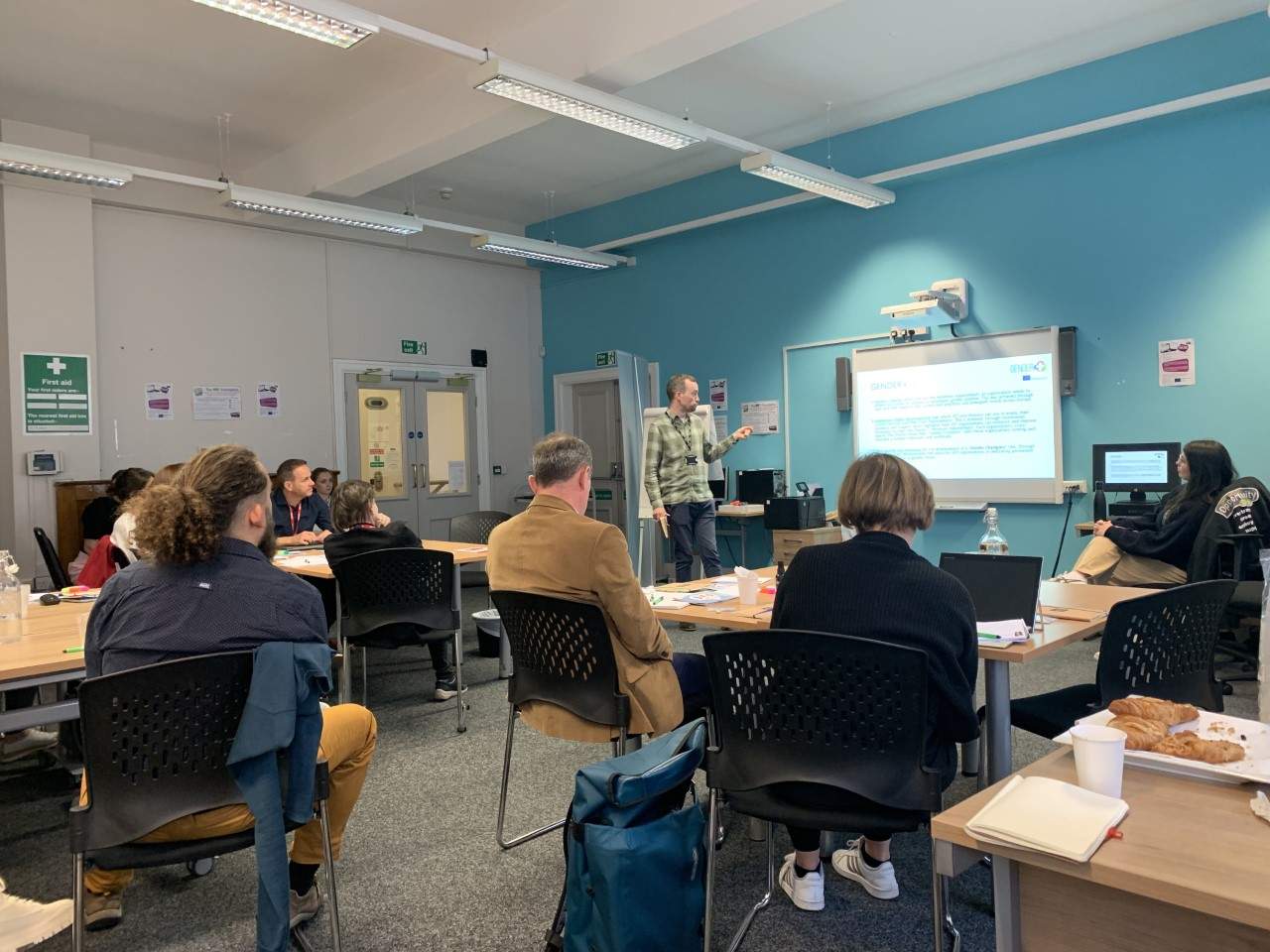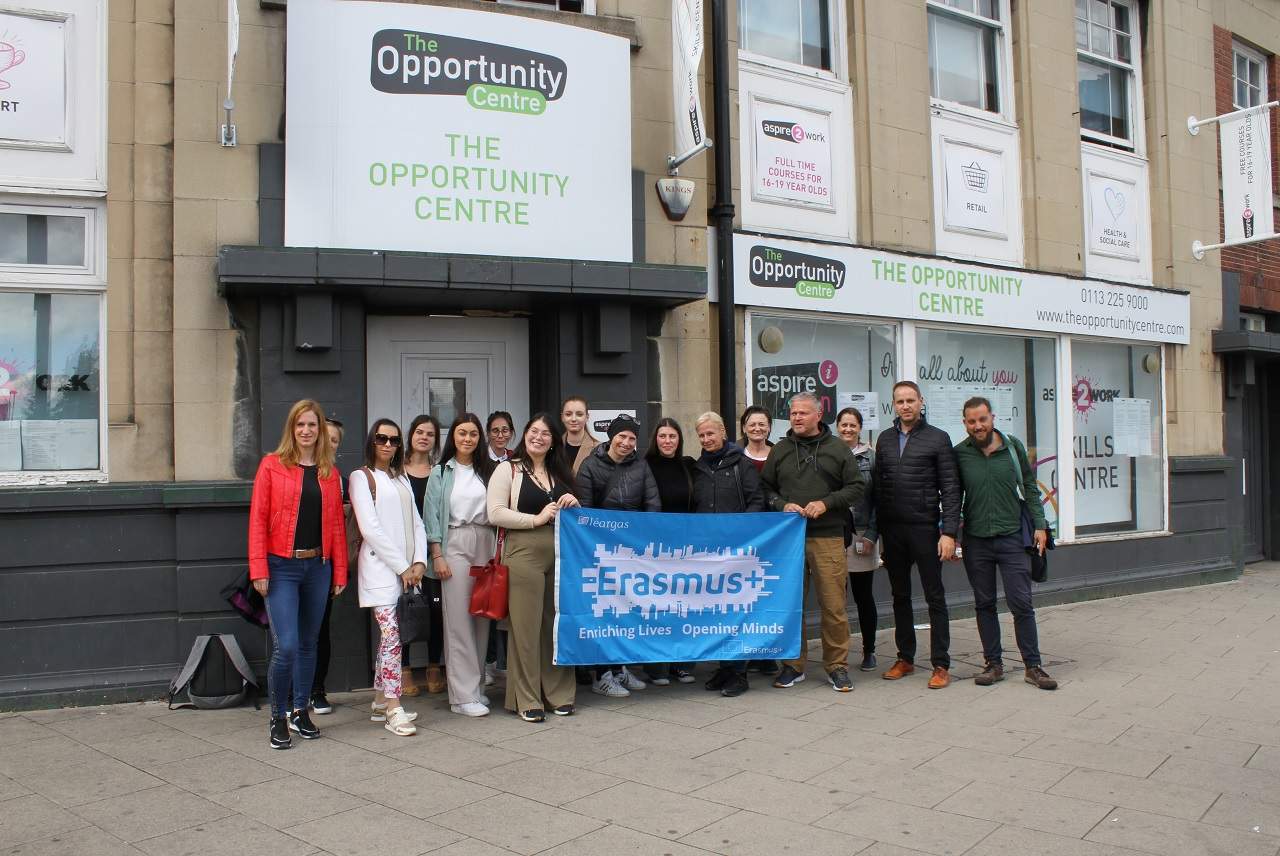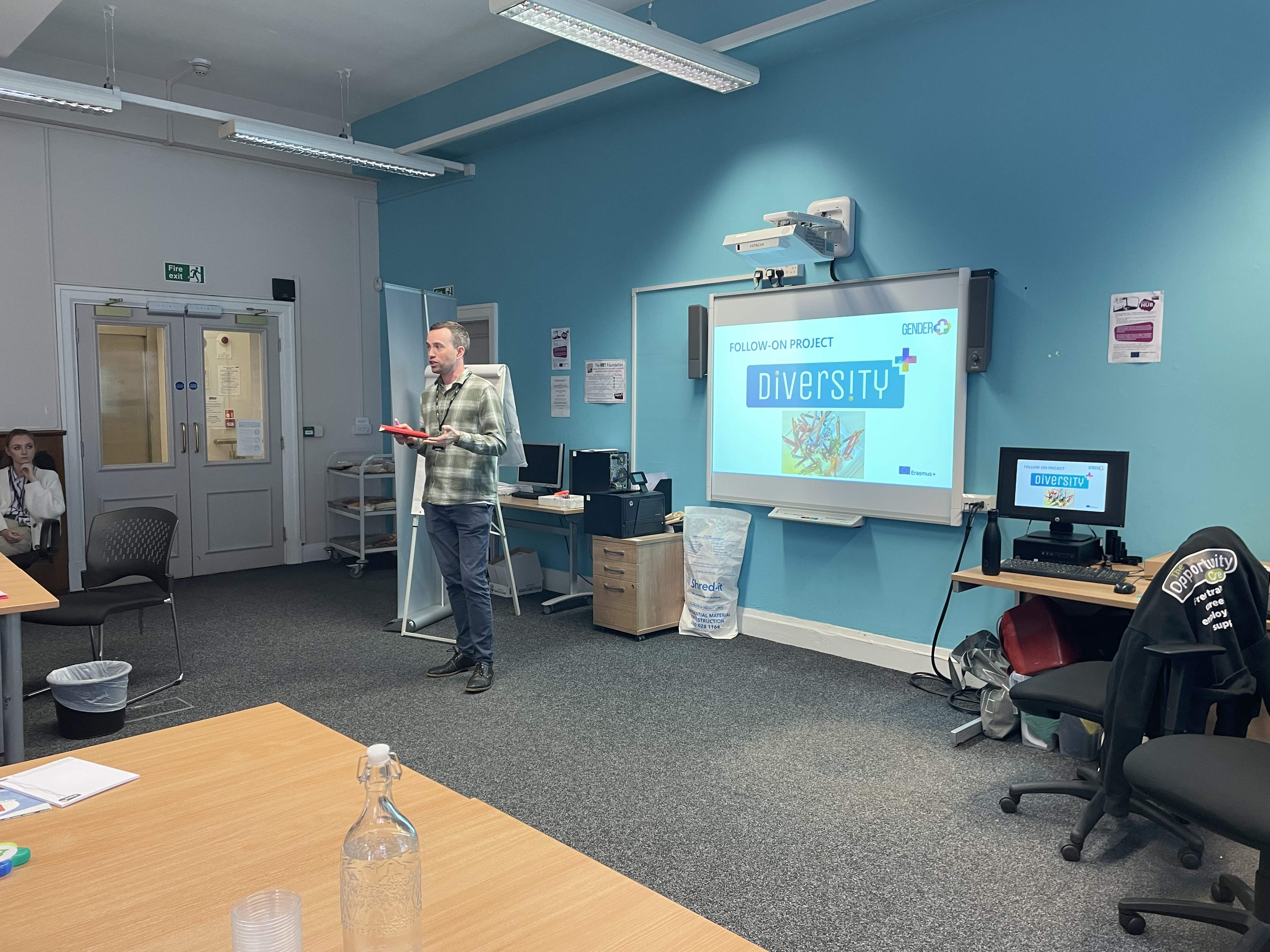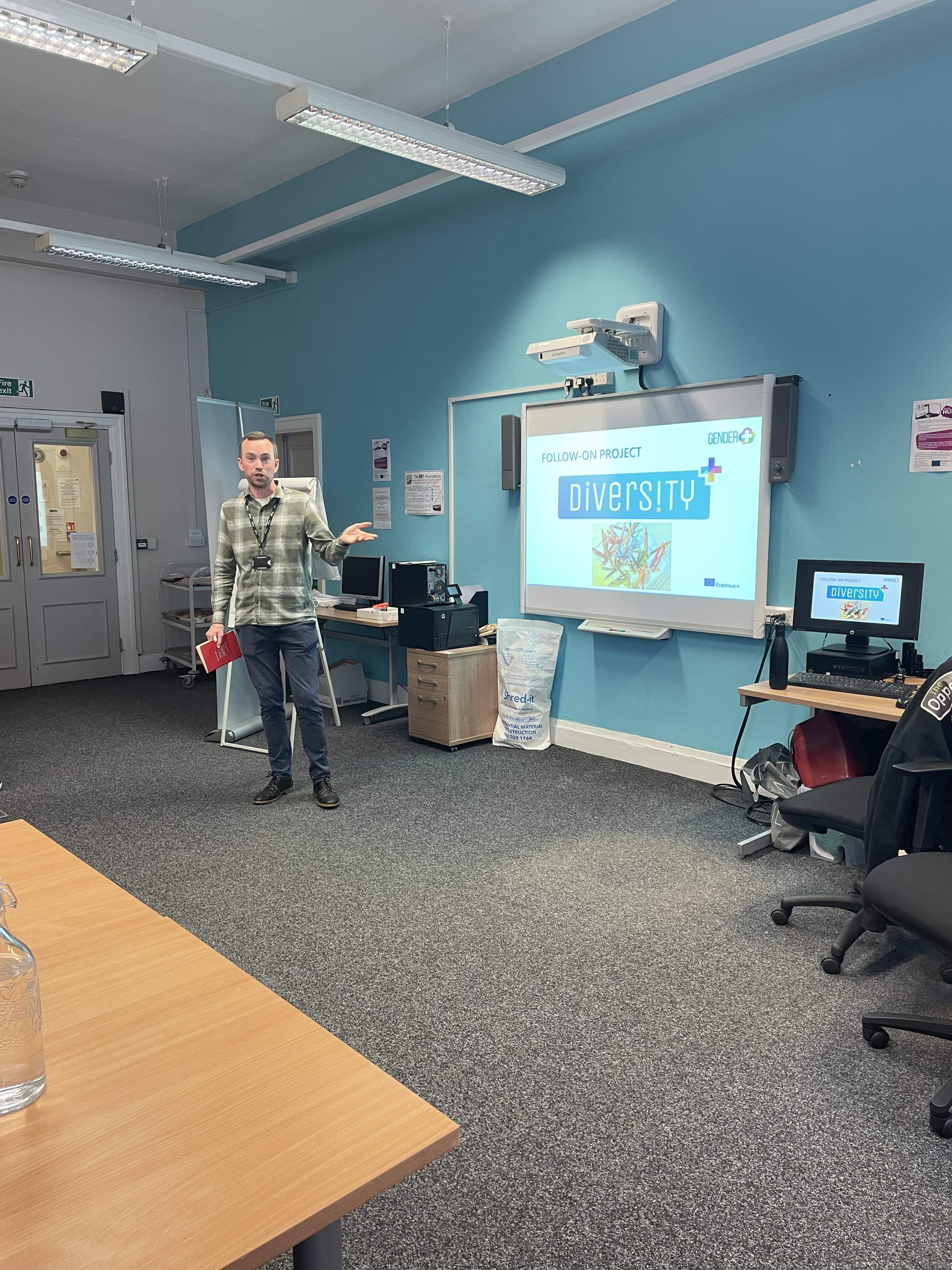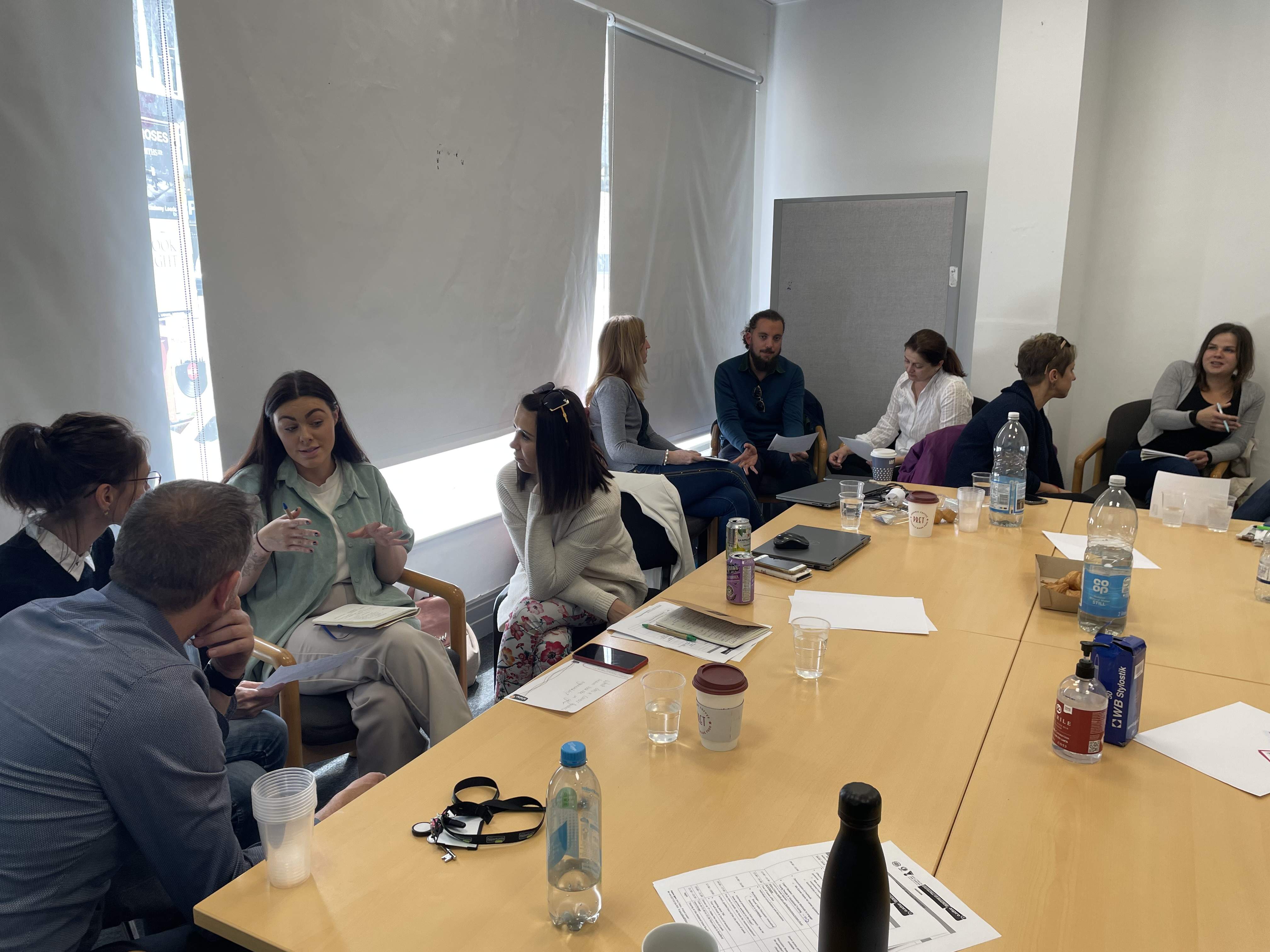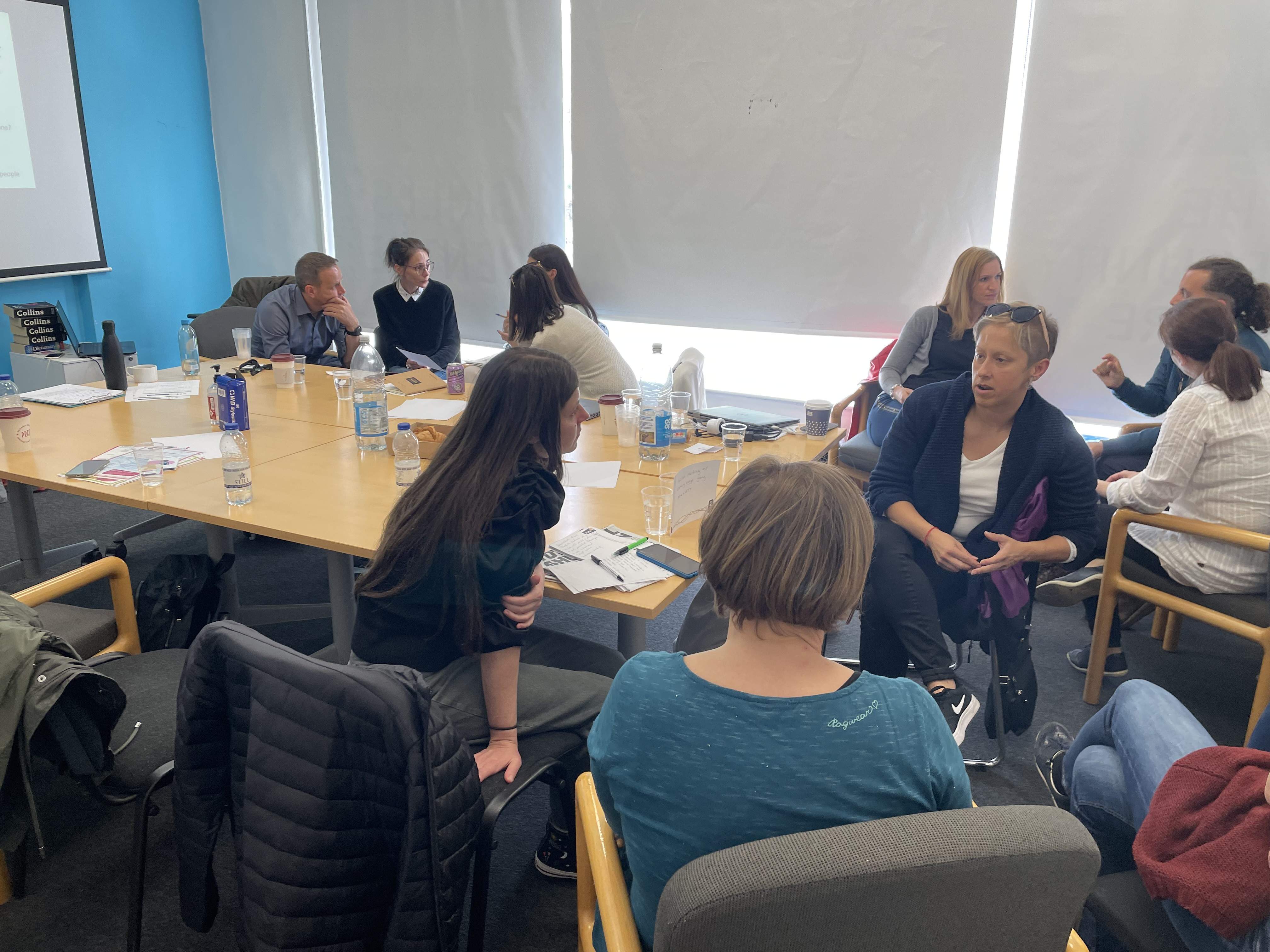Short Summary of the Joint Staff TrainingDate: 07.06.2022 – 09.06.2022
Venue 1 / 7th and 9th June: The Opportunity Centre, Bradford / UNITED KINGDOM
Meeting point: Floor 2 / Meeting Point: The BoardroomVenue 2 / 8th June: The Opportunity Centre, Leeds / UNITED KINGDOM
Meeting point: The Conference room
At the Short-Term Joint Staff Training which was held in the United Kingdom, discussions regarding the interest in Vocational and Educational Training were held. The aim of these training days was to discuss and conclude on how to engage with more learners in order to increase the prestige of VET. Day one was opened with a speech by Caroline Harrison after welcoming the partners to The Opportunity Centre in Bradford, followed by an icebreaker and informal discussion. Day two was held in the Conference room of the Opportunity Centre in Leeds, where Meirul Din presented her input on VET as well as giving the partners a tour of the Leeds office and learner’s construction site. Day three was held in the Boardroom of the Bradford Opportunity Centre where David Newnham gave a talk on how to gain interest among learners in VET, along with some discussion by the partners.
Summary
After welcoming the partners, the opening speech was held by Caroline Harrison, Group Chief Executive of The Opportunity Centre, who introduced the partners to Aspire-igen. Afterwards, Michael Miller, project officer on the Aspire International team, gave a presentation about VET outreach approaches and ongoing Erasmus+ projects of Aspire-Igen. Shortly after, Ana Tokos, project leader of the Aspire International team, gave a tour of the Opportunity Centre and its classrooms where partners were able to ask students questions regarding VET and how useful they found it in comparison to prior education or other routes of employment. After the tour, partners were introduced to a boardgame provided as an icebreaker. The exercise involved partners splitting into groups and choosing different skills and qualities to introduce into a new colony of people on a new planet as a concept for this exercise, providing reasoning for these qualities on how they can help pave the way to a successful community. This exercise provided the partners to get to know one another as well as staying in theme of VET and skills development in various career paths. To end the day, informal discussions about engagement methodologies and how effective games can support careers guidance were held. It was concluded that games can be effective when it comes to exploring certain jobs that require more physical work, as sparking that interest by doing the task can help learners to develop a better understanding of the industry they wish to go into.
Following the first day, the next training session was held at The Leeds Opportunity Centre in the Conference room by Meirul Din. Discussions regarding the effectiveness of gamification were held, partners suggesting interactive learning through gamification can be effective among young people who would like to go into work yet are unsure of what career path they would prefer to choose. It was also highlighted that there should be IT updating requirements for these games as to have the right information regarding certain job sectors up to date as well as keeping in mind the training of teacher’s skills development needs in order to introduce these games to their students with good understanding and knowledge. Following these discussions, the partners were toured around the Leeds office and introduced to the teachers and students within its facilities. To end the day, breakout group discussions around key topics were held. It was discussed that it can be difficult for careers councilors and teachers to help determine what career paths may suit their students as many centres will vary when it comes to quality over quantity and getting young adults into the labour market. It was agreed by most partners that gamification is a good way to promote VET when it comes to introducing students to a particular job sector, such as construction.
The final training session began with a visit to The opportunity Centre construction facilities in Bradford, where the partners were introduced and able to interact with staff and learners on site. After the tour, the partners were brought back to The Bradford opportunity Centre where discussions could be held in the Boardroom. Some of the questions raised were ‘how can we emphasise that VET is an equal route to equality of life and employment after learning?’ Along with ‘how can employers engage with VET schools?’ In Ireland, there is an alternation between college and employment through apprenticeships provided by the government, however it is hard to find employers that sponsor non-certified learners. To combat these highlighted issues, it was suggested that it would be beneficial for employers to engage more with secondary schools and career guidance centres, where job fairs in smaller settings could be held so that information is better distributed and therefore gain more interest in VET.
To end the session, David Newnham, an employment and career skills key worker at The Opportunity Centre, offered his input around gaining interest in VET among young adults and how effective it can be depending on marketing. He highlighted that there are issues in dropout rates among learners in apprenticeships due to having a lack of knowledge or confidence in the job, therefore losing resilience and dropping out. David suggested that it is the provider’s responsibility to gauge the student’s strengths and skills before sending them into a job they may not stick to due to having a lack of knowledge on the tasks required of them. It was agreed that it is good to build confidence in order to then build resilience and motivation among learners, where then the reputation of VET can be improved as there would be higher rates of learners choosing VET as a viable route and sticking to this path. The training ended at 01:00 pm.

